Bell: a small appliance that allows someone to signal or call you when you are in your home.
Although we now have a huge range of opportunities in terms of communication and connectivity with other people such as the Internet, mobile phones, social networks, etc., bells are still important for people-to-people contacts.
When we stand at our neighbour's or friend's door, the quickest and most convenient way to let them know that we have arrived is by using a doorbell.
If you need a new bell or you just want to replace your old one, you are in the right place: Elmark's Online Store.
Here you will find a variety of bells with a number of advantages and types, but they all have one thing in common: high quality manufacture.
Below, we will introduce you to this little device and give you some advice to help you choose a bell for your home.
What bells are and what they are used for
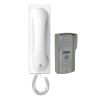
Let's start from the basics: what a bell is. A bell is a signalling device usually placed near the door of a building or apartment.
When the visitor presses the button on the device, the bell in the building makes a sound, alerting residents to the presence of a guest at the door.
There are currently two main types of bells: home doorbells and panel bells. They differ both in the location where they are fitted and in the way residents in the home are notified of the presence of a visitor.
The home doorbell is a simple device consisting of a button placed outside the dwelling and a bell installed inside the dwelling.
Panel bells are usually installed at the entrances of apartment blocks or on the fences of houses and estates. This kind of bell is usually accompanied by a communication device (intercom) for direct contact with the apartment and the people in it.
Brief history of bells
Before the doorbell was invented, people announced their presence by knocking or even shouting.
In 1817, the Scottish inventor William Murdoch installed several of his innovative devices in his home. One of these was a loud bell that worked using a system of tubes with compressed air inside them. This was considered to be the first doorbell.
Later, the invention developed and mechanical bells were invented. These were activated by pulling a string.
Around 1831, another inventor, the American scientist Joseph Henry, created the precursor to modern electric doorbells: a ringing device that could be operated remotely by means of an electric wire.
By the beginning of the 20th century, electric doorbells had become common and many cities in Western Europe already had them.
Modern bells have many more accessories and are far more sophisticated. Almost all of them now have intercom systems and video controlled bells are no exception.
Wireless doorbell: an up-to-date solution for every home
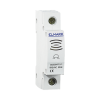
The wireless doorbell is certainly one of the most advanced inventions in this field.
As its name suggests, it works without the need to physically connect the doorbell button with the bell itself.
It can be easily fitted as there is no need to drill through walls and provide wiring. But this type of bell has many other advantages.
Their main benefit is mobility. They are suitable for houses, villas, estates and even mountain huts. This is due to the way they work.
Wireless bells work by using radio waves that transmit the signal generated by pressing the button over distances of up to 30 to 100 metres.
The variety of types is also the main reason why these types of bells are popular with consumers: you can choose between different models as well as the type of power supply (accumulator or battery).
The bells that Elmark offers have three ringer volume levels, so depending on where you plan to fit it, you can adjust the ringer volume to suit your needs.
For example, if you are in a noisy place, your best option is to set the loudest ringer to make sure that you hear the bell.
But if you are in a quiet place, you can set it to quiet ringing that will not cause stress or irritation.
In addition to all of these advantages, Elmark bells also produce a wide range of ringtones that will suit any musical taste.
Choosing a panel bell
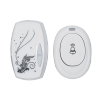
As mentioned above, this type of bell is fitted on the panel and usually used at the entrances of blocks flats or on the outside fences of houses.
Modern panel bells are essentially only wireless, as wiring would be difficult and expensive, especially in tall blocks of flats.
Note that Elmark items in this product range are designed for easy installation in the apartment panel so that you do not have to find additional space for your bell.
Our advice when choosing a doorbell for your home is to go for a proven manufacturer and not skimp on the purchase.
It is also important to consider the voltage of your bell and to choose an external one that is compatible in this respect. The good news is that our online store can offer you products with different voltages to meet your needs.
Tips for choosing a bell for your home
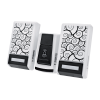
As mentioned above, this type of bell is fitted on the panel and usually used at the entrances of blocks flats or on the outside fences of houses.
Modern panel bells are essentially only wireless, as wiring would be difficult and expensive, especially in tall blocks of flats.
Note that Elmark items in this product range are designed for easy installation in the apartment panel so that you do not have to find additional space for your bell.
Our advice when choosing a doorbell for your home is to go for a proven manufacturer and not skimp on the purchase.
It is also important to consider the voltage of your bell and to choose an external one that is compatible in this respect. The good news is that our online store can offer you products with different voltages to meet your needs.
What bells are and what they are used for
-
To the product
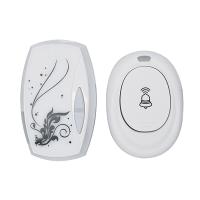 WIRELESS DOORBELL 5020 AC 36 MELODY 5020
WIRELESS DOORBELL 5020 AC 36 MELODY 5020-
Brand

IP code IP20 Colour White Sound level 65-85dB Warranty 
-
Brand
-
To the product
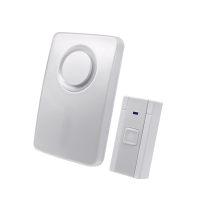 WIRELESS DOORBELL 5016 AC 36 MELODY 5016
WIRELESS DOORBELL 5016 AC 36 MELODY 5016-
Brand

IP code IP20 Colour Silver/White Sound level 65-85dB Warranty 
-
Brand
-
To the product
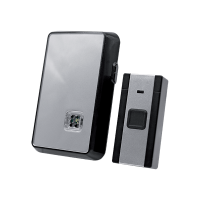 WIRELESS DOORBELL 5019 AC 36 MELODY 5019
WIRELESS DOORBELL 5019 AC 36 MELODY 5019-
Brand

IP code IP20 Colour Silver/Black Sound level 65-85dB Warranty 
-
Brand
-
To the product
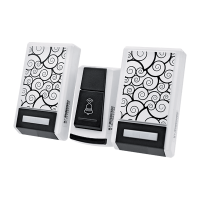 WIRELESS DOORBELL 5015 2PLUGIN/1BUTTON AC 36 MELODY 5015
WIRELESS DOORBELL 5015 2PLUGIN/1BUTTON AC 36 MELODY 5015-
Brand

IP code IP20 Colour White/Black Sound level 65-85dB Warranty 
-
Brand
-
To the product
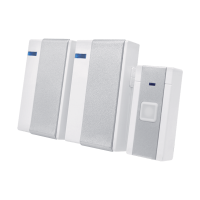 WIRELESS DOORBELL 5018 2PLUGIN/1BUTTON AC 36 MELODY 5018
WIRELESS DOORBELL 5018 2PLUGIN/1BUTTON AC 36 MELODY 5018-
Brand

IP code IP20 Colour Silver/White Sound level 65-85dB Warranty 
-
Brand
-
To the product
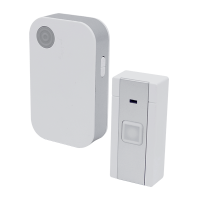
-
To the product
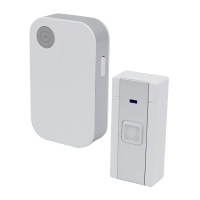
-
To the product
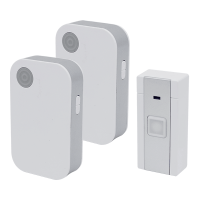 WIRELESS DOORBELL 5023/2 DC 36 MELODIES TWO RECEIVERS 5023/2
WIRELESS DOORBELL 5023/2 DC 36 MELODIES TWO RECEIVERS 5023/2-
Brand

Colour White/Gey Sound level 70-85dB Warranty 
-
Brand
-
To the product
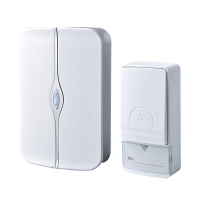
-
To the product
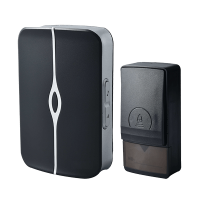
-
To the product
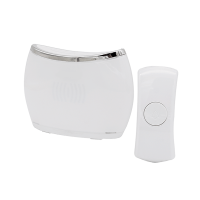 WIRELESS DOORBELL 5025WH DC 36 MELODIES WHITE 5025WH
WIRELESS DOORBELL 5025WH DC 36 MELODIES WHITE 5025WH-
Brand

Colour White Sound level 70-85dB Warranty 
-
Brand
-
To the product
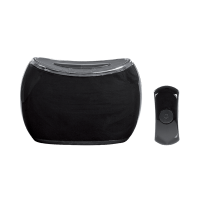 WIRELESS DOORBELL 5025BL DC 36 MELODIES BLACK 5025BL
WIRELESS DOORBELL 5025BL DC 36 MELODIES BLACK 5025BL-
Brand

Colour Black Sound level 70-85dB Warranty 
-
Brand
-
To the product
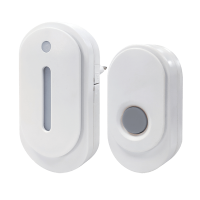
-
To the product
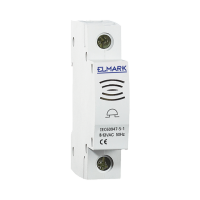
-
To the product
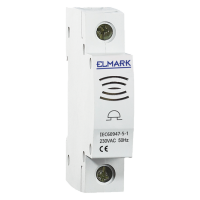
-
To the product
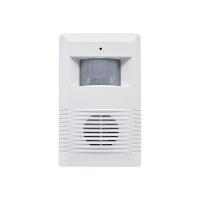 INFRARED INDUCTION DOORBELL 5021 5021
INFRARED INDUCTION DOORBELL 5021 5021-
Brand

Rated voltage 4.5 V IP code IP20 Colour White Sound level 85dB Warranty 
-
Brand
-
To the product
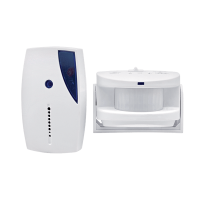 INFRARED INDUCTION DOORBELL 5022 5022
INFRARED INDUCTION DOORBELL 5022 5022-
Brand

Rated voltage 4.5 V IP code IP20 Colour White Sound level 85dB Warranty 
-
Brand
-
To the product
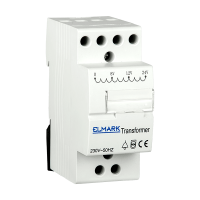
Prices are VAT inclusive






